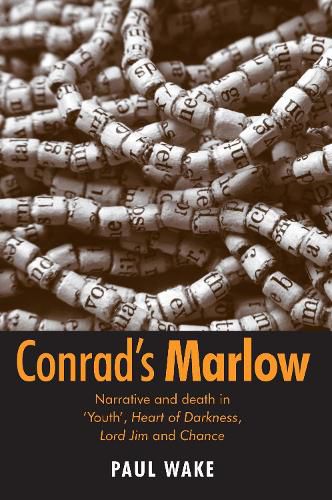Readings Newsletter
Become a Readings Member to make your shopping experience even easier.
Sign in or sign up for free!
You’re not far away from qualifying for FREE standard shipping within Australia
You’ve qualified for FREE standard shipping within Australia
The cart is loading…






Variously described as ‘the average pilgrim’, a ‘wanderer’, and ‘a Buddha preaching in European clothes’, Charlie Marlow is the voice behind Joseph Conrad’s Youth (1898), Heart of Darkness (1899), Lord Jim (1900) and Chance (1912).
Newly available in paperback, Conrad’s Marlow offers a comprehensive account and critical analysis of one of Conrad’s most celebrated creations, asking both who and what is Marlow: a character or a narrator, a biographer or an autobiographical screen, a messenger or an interpreter, a bearer of truth or a misguided liar?
Reading Conrad’s fiction alongside the work of Walter Benjamin, Maurice Blanchot, Jacques Derrida and Martin Heidegger, and offering an investigation into the connection between narrative and death, this book argues that Marlow’s essence is located in his liminality - in his constantly shifting position - and that the emergence of meaning in his stories is at all points bound up with the process of his storytelling. – .
$9.00 standard shipping within Australia
FREE standard shipping within Australia for orders over $100.00
Express & International shipping calculated at checkout
Variously described as ‘the average pilgrim’, a ‘wanderer’, and ‘a Buddha preaching in European clothes’, Charlie Marlow is the voice behind Joseph Conrad’s Youth (1898), Heart of Darkness (1899), Lord Jim (1900) and Chance (1912).
Newly available in paperback, Conrad’s Marlow offers a comprehensive account and critical analysis of one of Conrad’s most celebrated creations, asking both who and what is Marlow: a character or a narrator, a biographer or an autobiographical screen, a messenger or an interpreter, a bearer of truth or a misguided liar?
Reading Conrad’s fiction alongside the work of Walter Benjamin, Maurice Blanchot, Jacques Derrida and Martin Heidegger, and offering an investigation into the connection between narrative and death, this book argues that Marlow’s essence is located in his liminality - in his constantly shifting position - and that the emergence of meaning in his stories is at all points bound up with the process of his storytelling. – .